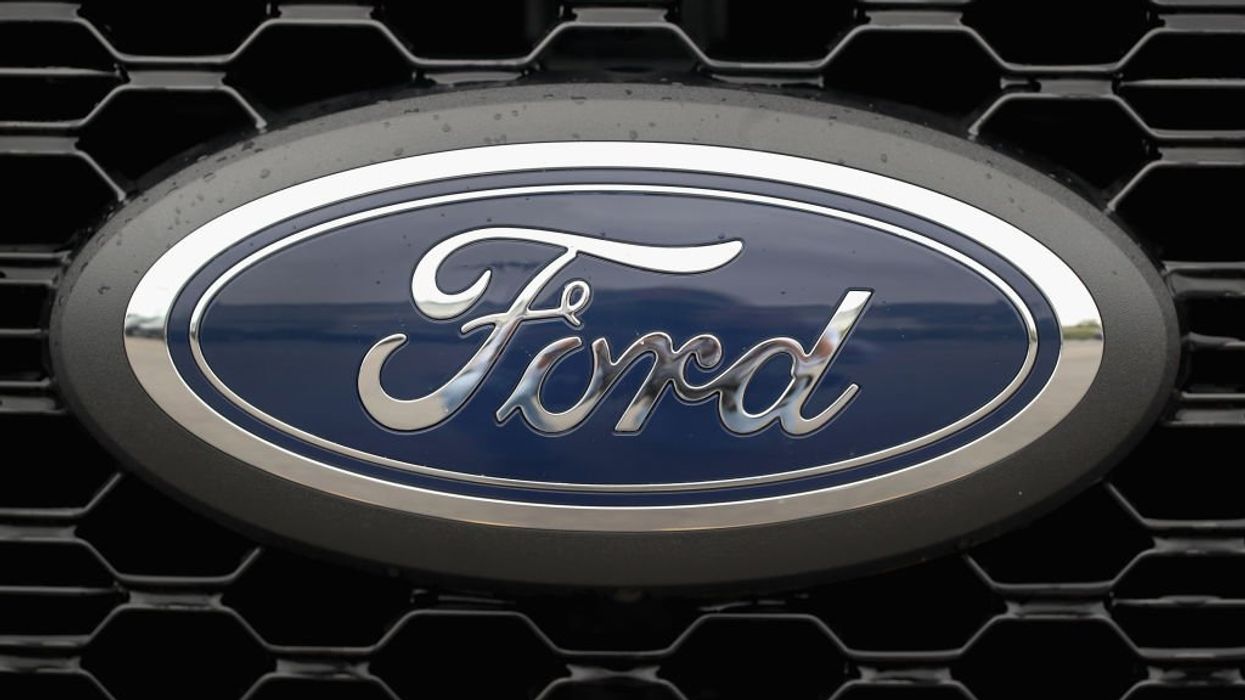
Scott Olson/getty
Companies can now use technology to inform on you while driving.
Ford, once an icon of American innovation, now wants to take the lead on another emerging and upcoming trend — mass surveillance.
In January 2023, Ford filed a patent application for a new technology that would allow it to track the driving behavior of vehicles on the road and report speeding violations to law enforcement. Vehicles would have cameras that activate if they detect speeding vehicles nearby and capture high-quality images of the offending vehicle and its identifying features, such as license plates or accessories attached to the offending car. Then, those images and GPS data would be shared with local law enforcement to decide whether to initiate a chase.
Many believe that these cameras violate drivers’ privacy. But it shouldn’t come as a surprise that corporations and governments worldwide already have methods to spy on their citizens. Governments have been found to hack into private individuals’ phones through software provided by corporations, and the NSA admits to purchasing Americans’ sensitive data.
Local law enforcement has always partnered with corporations to surveil the public by installing cameras to detect speeding and running red lights. These cameras have come under fire for their questionable legality and efficacy, spurring some states to ban them.
Car makers already have a habit of violating drivers’ privacy. A New York Times reporter found that General Motors 'tricked millions of drivers into being spied on' by tracking detailed driving data and adjusting insurance rates accordingly; those with supposedly poor driving behavior would see their rates increase.
In Texas, Gov. Greg Abbott signed a bill to ban red-light cameras in 2019, two years after KXAN, an Austin-based NBC affiliate, reported that almost all cities with red-light cameras had illegally issued traffic tickets. Their investigation also found that drivers paid the city of Austin over $7 million in fines since the cameras were installed, and cities in Texas made over $500 million from the cameras since 2007.
For now, Ford’s new camera idea remains a patent application, so it's not certain whether we’ll see F-150s snitching on you for going five mph over the limit, even if Ford is granted the patent. But if it does become reality, we’ll probably see F-150s snitching on you for no reason at all. After all, if red-light cameras are faulty, why won’t Ford’s camera be?
Car makers already have a habit of violating drivers’ privacy. A New York Times reporter found that General Motors “tricked millions of drivers into being spied on” by tracking detailed driving data and adjusting insurance rates accordingly; those with supposedly poor driving behavior would see their rates increase.
As a result, lawmakers urged the Federal Trade Commission to crack down on car makers’ privacy violations. In a letter to the FTC, Sen. Ron Wyden (D-Ore.) and Sen. Ed Markey (D-Mass.) accused GM, Honda, and Hyundai of spying on drivers and selling data for pennies. In the letter, they claim that Honda sold data from 97,000 cars, at a rate of 26 cents per car, to Verisk, a data analytics provider for insurance companies, between 2020 and 2024. Between 2019 and 2024, Hyundai sold data from 1.7 million vehicles, at a rate of 61 cents per car, to Verisk.
“The FTC should hold accountable the automakers, which shared their customers’ data with data brokers without obtaining informed consent, as well as the data brokers, which resold data that had not been obtained in a lawful manner,” the two senators urged.
Car makers aren’t the only ones scheming to snitch on drivers, though. Popular apps like Life360, a location-sharing app popular for families with teens, are accused of selling families’ data to insurance companies. Despite being advertised as an app that helps improve families’ safety, it violates families’ privacy. In 2021, one former X-mode employee claimed, “Life360 had the ‘most valuable offerings due to the sheer volume and precision’ compared to other sources of data,” according to the Verge.
MyRadar, a weather forecast app, and GasBuddy, which finds the cheapest gas stations, are also accused of violating privacy for profit.
Some insurance companies are finding ways to gather driving data without buying it from someone else. Progressive, for example, has a product called the Progressive Snapshot. Drivers voluntarily attach the device to their vehicles, allowing Progressive to track their driving behavior. Each time the device detects a hard brake, it will beep, encouraging drivers to alter their behavior on the road.
Progressive claims that safe drivers will be rewarded with discounts, but it's uncertain whether it will benefit most drivers. People who work in big cities must deal with bumper-to-bumper traffic during rush hour, causing them to brake harder or unexpectedly. Even though frequent hard braking is out of their control, they may see their insurance rates increase.
Fortunately, Progressive Snapshot is a voluntary program. However, insurance companies already have ways to track driving behavior without alerting their customers. In an era that feels eerily similar to Orwell’s "1984," it's only a matter of time until all Americans realize they’re being spied on.
Ethan Xu